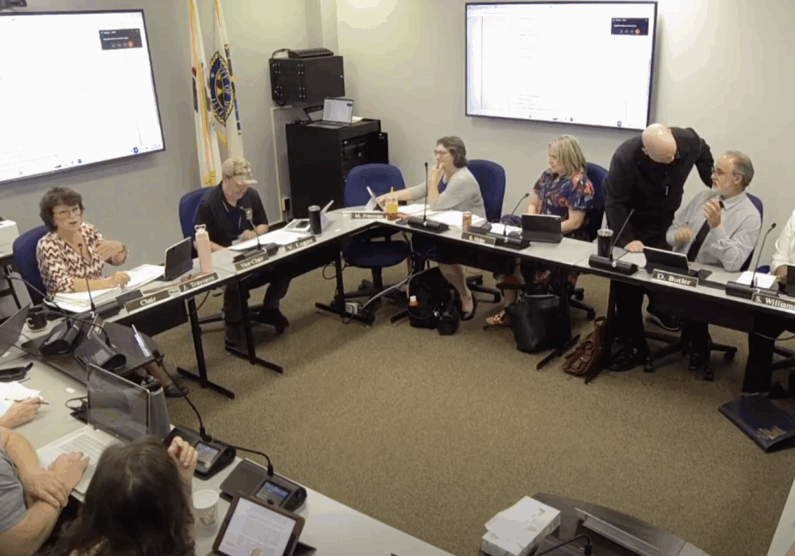
Will County to Draft New Harassment Policy Amid Debate Over Board Authority
The Will County Ad-Hoc Ordinance Review Committee will draft a new, county-wide general harassment policy after a lengthy debate on Tuesday revealed the complexities of the county’s legal obligations and the limits of the County Board’s authority over other elected officials.
The discussion arose during a review of Chapter 39 of the county’s ordinances, which contains the state-mandated sexual harassment policy. Board Member Dan Butler proposed broadening the policy’s title and scope from “sexual harassment” to a general “harassment policy,” arguing the county’s required training course covers a much wider range of protected classes, including veterans and pregnant women.
“I was surprised that it included a lot of groups other than just men and women of a sexual nature,” Butler said. “I just thought our policy should reflect that… to bring a broader understanding of what we’re trying to accomplish.”
However, Phil Mock of the Will County State’s Attorney’s Office, who is guiding the committee’s review, advised against altering the existing policy. He explained that state law specifically mandates a standalone “Sexual Harassment Policy,” and changing the title could put the county out of compliance.
“The reason we use that term is because the state mandated us to use that term,” Mock said. “We don’t want to be in a situation where they said, ‘You just have a general harassment policy, you don’t have a sexual harassment policy.'”
This prompted a deeper conversation about the board’s power to set policy for the entire county. Member Judy Ogalla questioned why some ordinances apply county-wide while others do not. Mock described the county government structure as a “feudal system with a bunch of dukes and not one king,” where each elected official—like the Sheriff, County Clerk, or Coroner—maintains control over their office’s internal operations.
He clarified that the County Board’s authority is strongest on fiscal matters. Policies with direct financial implications, like those concerning insurance benefits or purchasing, are binding. Policies on workplace conditions, however, are largely followed voluntarily by other elected officials.
“As a county voice you can say that,” Mock said, suggesting a separate anti-harassment policy would likely be adopted by other officials. “My belief is all the elected officials will voluntarily follow your policy because that makes it easy on them. They don’t have to make their own up.”
Ultimately, the committee voted to direct Mock to draft a new, separate general harassment policy to be added to Chapter 39. The policy will address protections for various classes as defined by state law and court interpretations. Due to the addition of this new section and other required changes, the committee voted to postpone final approval of Chapter 39 until its next meeting.
Latest News Stories

MIT rejects White House education demands

Energy cost concerns loom as legislators look at policy changes

WATCH: Trump touts ‘historic’ ‘Peace Summit’ as world leaders convene in Egypt

PJM exit: A price solution or power move?

U.S. consumers to pay 55% of tariff costs, Goldman Sachs says

JPMorganChase to invest $10B in U.S. firms key to national security

Broadview, Illinois reduces ICE protest zone after ‘chaos,’ 15 arrests

Louisiana: Voting Rights Act ‘balkanizes’ competing racial factions

Illinois’ ‘F’ grade leaves taxpayers on the hook for billions, watchdog says

Democrat Mills to challenge Collins with for U.S. Senate

Some New York school districts spend almost or more than $100,000 a student

Illinois quick hits: Chicago Jewish Alliance on peace developments; Blue Ribbon Schools announced

WATCH: Trump’s emergency Guard appeal denied; Fiscal Fallout reviews state salaries

Trump delivers message of peace, hope during historic Knesset address
